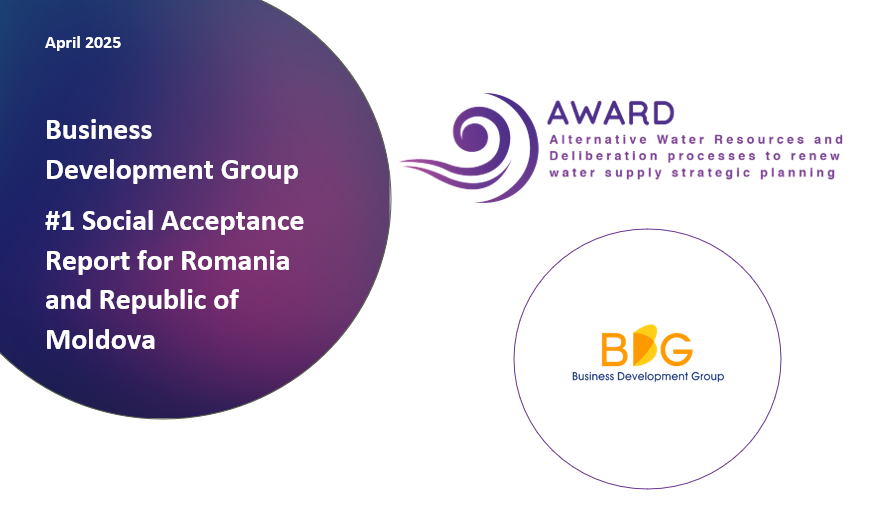In the second part of 2024, the BDG team, leader of the Work Package 2 – ‘’Socio-political support and engagement for AWRs management’’, has worked on a report which aims to capture the societal shifts in attitude in the transition from a clean water supply to Alternative Water Resources.
A total of 158 responses from Romania and Moldova were collected through a mixed-method approach that combined qualitative and quantitative data, enabling data triangulation. Primary data was generated from 10 in-depth interviews with relevant stakeholders and 148 responses to an online quantitative survey completed by citizens. The research explored several key topics, including:
- Knowledge about Global Water issues
- Information/ awareness about Alternative Water Resources
- Citizen satisfaction with current water local services
Firstly, respondents from Romania and Moldova, particularly in the agricultural sector, expressed awareness of water-related challenges such as droughts, outdated infrastructure, and river pollution, manifesting a certain optimism towards future AWRs and innovative technologies.
Secondly, many citizens noted that information on water quality, including pollution levels and treatment standards, is either inaccessible or too technical, leading to skepticism and resistance toward AWRs, especially amid rising water prices.
Lastly, most respondents reported never having participated in local environmental decision-making, indicating a significant gap between citizens and authorities that could hinder public trust and the acceptance of new water solutions. Despite this, respondents expressed a strong interest for future involvement in AWARD activities such as Local Water Forums.
These topics forms the foundation for Deliverable 2.3, Policy Brief #2, which will be based on a comparative study integrating the Romania-Moldova report alongside the other Demo Case findings.
